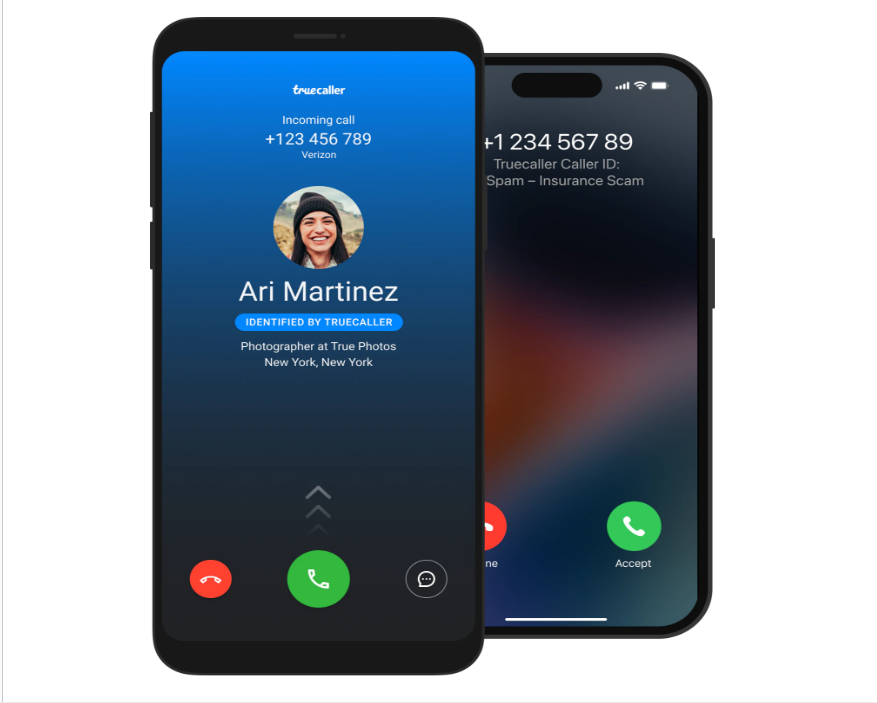Goldstuck on Gadgets
Gadget of the Week: Put the smart in phone
Truecaller has come a long way since its days of hit-and-miss caller ID, writes ARTHUR GOLDSTUCK.
What is it?
The smartphone is the one gadget almost everyone owns, but nowadays it is less a phone than a smart gadget for anything but phoning. Perhaps that is because the basic phone functionality has never truly evolved.
One would have expected, by the 30th year of general cellphone availability, that network operators would have moved past caller line identity and itemised billing. Their failure to do so opened the door to apps like Truecaller, which matched that line identity to the actual identity of the caller, based on users submitting names associated with numbers. A useful feature, when it worked, was a search function for finding out who owned a specific number.
It was a hit-and-miss business, partly because none of these apps had critical mass, and therefore could not provide a comprehensive service. Truecaller was awful at usability. Mostly, it got in the way of answering calls. Eventually, I deleted it.
With a rising number of dodgy calls from random telesales people and bots – hard to tell them apart – it seemed that identifying callers should be a 2024 goal.
I turned to Truecaller once again. I was astonished by its improved interface and new functionality.
The feature that most caught my attention was the ability to record calls. For some reason, almost all voice recorders, video recording software, or transcription engines are disabled while a voice call is under way. The rationale is that recording a call is a violation of privacy.
This may well be the case when one is making a call to someone else with malicious intent. However, in an era when call centres routinely advise one that a call is being recorded “for quality purposes”, it seems logical that one should be able to record one’s own calls for self-protection purposes.
The function is not available in the free version of the app, which is advertising-supported, and therefore continues to be as much of an irritant as spam calls themselves.
The paid plans start at R139 a year for the basic ad-free version, which works out at less than R12 a month. That’s less than the proverbial cup of coffee from almost anywhere. However, it offers only caller ID and spam blocking.
The next level up, Connect, adds features like notification of who viewed one’s profile or searched for one. It includes unlimited contact requests, incognito mode, and “assistant voices” that allow a virtual assistant – that is artificial intelligence – to screen one’s calls.
I found the basic version more than enough for my needs. By adding basic smarts, it turns core phone functionality into something resembling a real smartphone.
Several of these can be added via workarounds and other downloaded apps, but Truecaller delivers an all-in-one package that is also more integrated and flexible than these options.
What does it cost?
The ad-supported version is free, the Ad-free basic Connect version costs R1395 a year (compared to $29,90 or R600 a year in the USA), and Assistant costs R390 a year. Bearing in mind the latter is half the price of the US cost of $49.99, It is a relative bargain.
Why does it matter?
Caller identification is an essential tool for managing both privacy and self-protection. The networks should facilitate this, but their caller-line identity (CLI) service only shows the callers’ numbers. And you pay for the privilege. As Truecaller continues operating, it builds up its database of number identifications submitted by users, making it a comprehensive database of names linked to numbers.
What are the biggest negatives?
- The basic paid version adds little functionality to the free option.
- There is little benefit to upgrading from the Connect to Assistant level.
What are the biggest positives?
- Comprehensive database means most calls are identified
- Does a better job of blocking spam than most built-in spam filters.
- Call-recording enhances both productivity and personal security.
- Adds extensive functionality to SMS management.
* Arthur Goldstuck is founder of World Wide Worx and editor-in-chief of Gadget.co.za. He is author of 20 books, including “The Hitchhiker’s Guide to AI”, published by Pan Macmillan. Follow him on Twitter and Instagram on @art2gee.

















